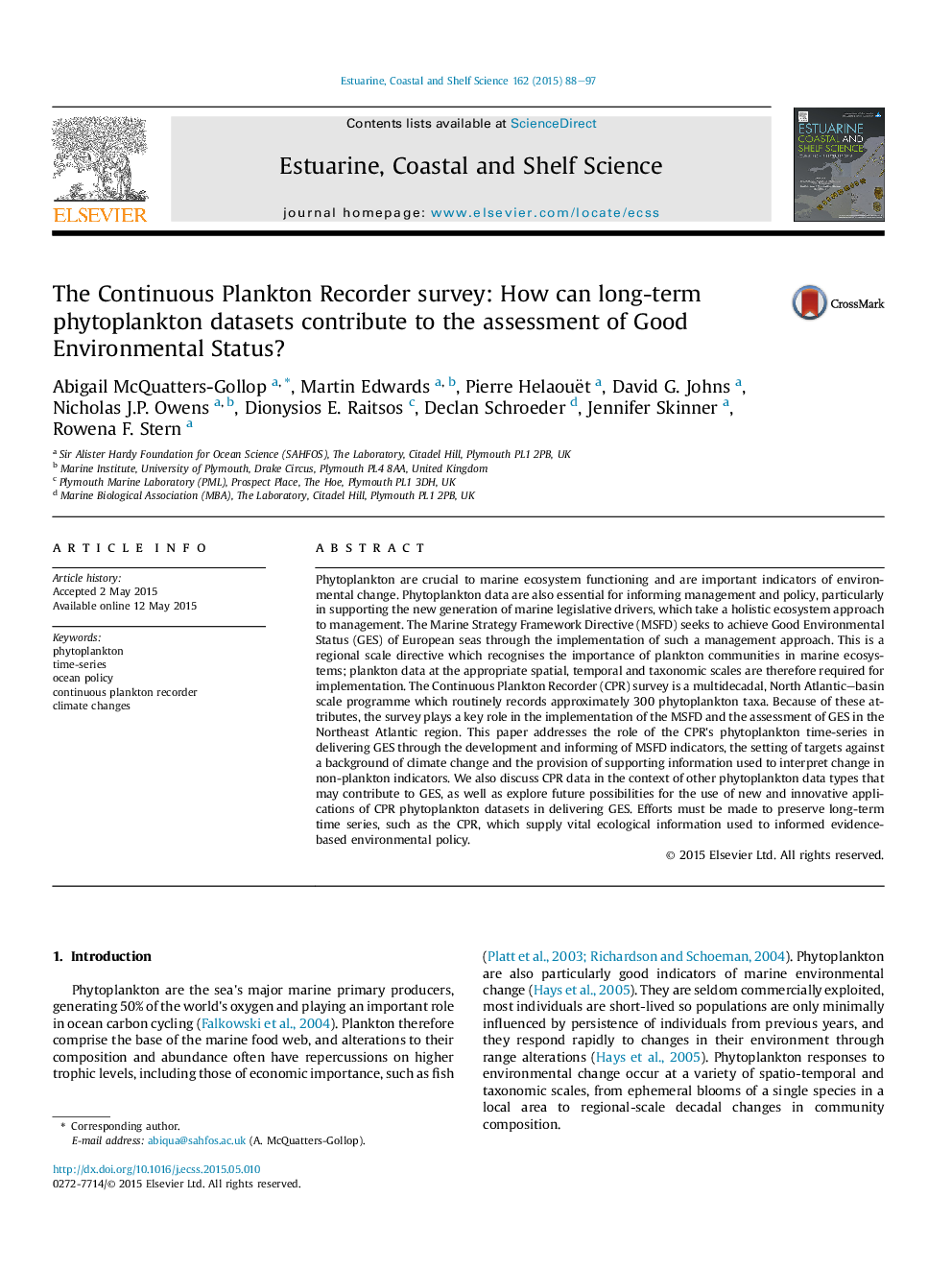| کد مقاله | کد نشریه | سال انتشار | مقاله انگلیسی | نسخه تمام متن |
|---|---|---|---|---|
| 4539450 | 1626634 | 2015 | 10 صفحه PDF | دانلود رایگان |
• The Continuous Plankton Recorder (CPR) survey is a basin-scale plankton monitoring programme.
• Phytoplankton data from the survey are key to developing and informing indicators for Good Environmental Status.
• Technological innovation and collaboration has expanded the CPR survey.
• A strategy to ensure sustenance of the survey for scientific research and to support marine policy is urgently required.
Phytoplankton are crucial to marine ecosystem functioning and are important indicators of environmental change. Phytoplankton data are also essential for informing management and policy, particularly in supporting the new generation of marine legislative drivers, which take a holistic ecosystem approach to management. The Marine Strategy Framework Directive (MSFD) seeks to achieve Good Environmental Status (GES) of European seas through the implementation of such a management approach. This is a regional scale directive which recognises the importance of plankton communities in marine ecosystems; plankton data at the appropriate spatial, temporal and taxonomic scales are therefore required for implementation. The Continuous Plankton Recorder (CPR) survey is a multidecadal, North Atlantic–basin scale programme which routinely records approximately 300 phytoplankton taxa. Because of these attributes, the survey plays a key role in the implementation of the MSFD and the assessment of GES in the Northeast Atlantic region. This paper addresses the role of the CPR's phytoplankton time-series in delivering GES through the development and informing of MSFD indicators, the setting of targets against a background of climate change and the provision of supporting information used to interpret change in non-plankton indicators. We also discuss CPR data in the context of other phytoplankton data types that may contribute to GES, as well as explore future possibilities for the use of new and innovative applications of CPR phytoplankton datasets in delivering GES. Efforts must be made to preserve long-term time series, such as the CPR, which supply vital ecological information used to informed evidence-based environmental policy.
Journal: Estuarine, Coastal and Shelf Science - Volume 162, 5 September 2015, Pages 88–97
